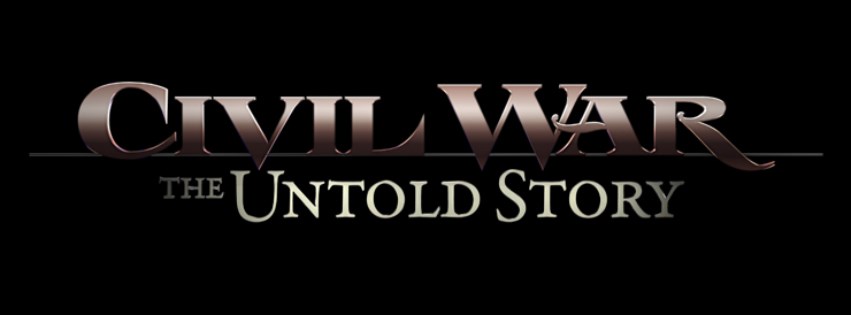
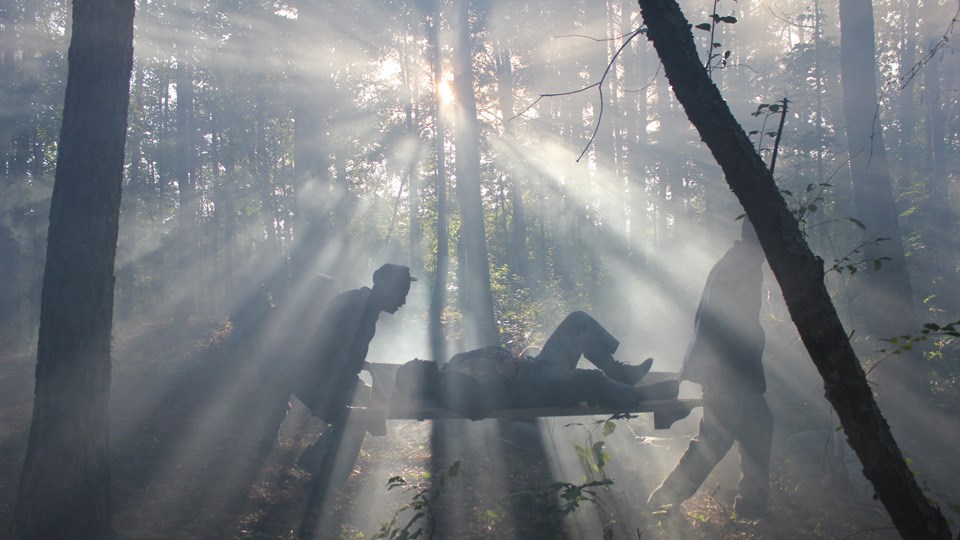
Great Divide Pictures 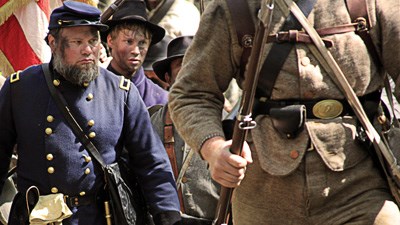
Great Divide Pictures General Grant National Memorial is pleased to be partnering with 12 other National Parks and 26 other institutions throughout the nation as a venue for the preview screening of Episode Five of Great Divide Pictures public television series Civil War: The Untold Story. The screening is on Tuesday, February 4, at 7:30 p.m. at the Faison Firehouse Theatre in Harlem, N.Y.C. at 6 Hancock Place (on 124th St., between Morningside & St. Nicholas Avenues). Episode Five will be introduced by Chris Wheeler, of Great Divide Pictures, who produced and directed the entire series. In addition there will be recitations, dance pieces, and a speech entitled, "New York City During the Civil War" presented by a park ranger from African Burial Ground National Monument. Civil War: The Untold Story is a visually stunning and absorbing new 5-hour documentary series that breaks new ground by examining the war through the lens of the Western Theater - battles in the strategic lands between the Appalachians and Mississippi River. Narrated by Elizabeth McGovern (Downton Abbey) the series is set to premiere nationally on public television stations beginning in February 2014. Rather than revisit the oft-told stories of the battles of Bull Run, Antietam and Gettysburg in the eastern states of Pennsylvania, Maryland and Virginia, this gripping and comprehensive new series instead tells the stories of Shiloh, Vicksburg, Chickamauga, Atlanta, and other battles in lands then known as "the West." Many historians believe that the Western Theater was where the war was won – and lost. In addition to the epic battles, Civil War: The Untold Story provides new insights into the relatively unknown roles African Americans played in the conflict – from enslaved, to emancipated, to soldier. 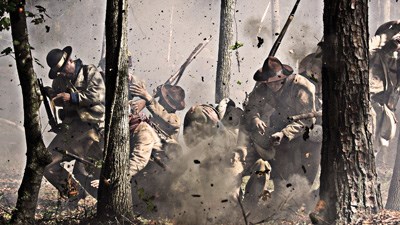
Great Divide Pictures Filmed in a sweeping cinematic style, Civil War: The Untold Story painstakingly recreates the battles of the Western Theater in a thoroughly authentic manner. Many scenes were filmed on the very grounds where these epic battles were fought, which add to the sheer magnitude of history felt throughout the films. The series also uses state-of-the-art 2D and 3D graphics, fascinating archival imagery, and incisive expert commentary by Civil War historians and scholars. Timed to coincide with the 150-year anniversary of the pivotal "Campaign for Atlanta," the series also chronicles the presidential campaign of 1864 in which Abraham Lincoln was nearly defeated. In many ways, Civil War: The Untold Story can be considered a prequel to Steven Spielberg's "Lincoln." Within the story of the Western Theater, the series highlights the causes of war, the home front, the politics of war, and the impact of war on Southern civilians and women. The authenticity of uniforms, voiceovers and scenery, makes it seemingly impossible to distinguish this modern adaptation from the actual war so many years ago. Civil War: The Untold Story is produced for public television by Great Divide Pictures, which, in addition to numerous cable television documentaries, has created more than 25 films shown in National Parks Visitor Centers around the country. The series is sponsored by Nashville Public Television and will be distributed to public television stations nationally by American Public Television (APT). 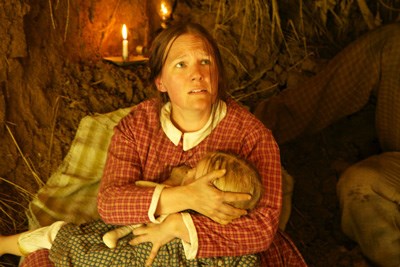
Great Divide Pictures "The film is not just about who we were then. It's about who we are now," said producer Chris Wheeler. "In a nation arguably as divided today as we were 150 years ago, Civil War: The Untold Story is a compelling, relevant program that we believe will strike a powerful chord with Americans today." Interspersed are compelling on-camera interviews with some of America's top Civil War historians – including Allen Guelzo, Henry R. Luce Professor of the Civil War Era at Gettysburg College; Peter Carmichael, Robert C. Fluhrer Professor of Civil War Studies at Gettysburg College; Amy Murrell Taylor, Associate Professor of History at the University of Kentucky; and Stacy Allen, the Chief Historian at Shiloh National Military Park. Civil War: The Untold Story will premiere on public television stations throughout the country in April 2014. For more information, visit the 'Civil War: The Untold Story' Facebook page. The following summary is from Episode 5 of Civil War: The Untold Story, which will be shown at the Faison Firehouse Theatre, in Harlem, N.Y.C., on Tuesday, February 4, at 7:30 p.m. 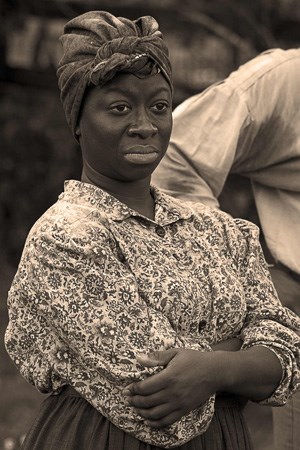
Great Divide Pictures Episode Five – With Malice Towards None In the spring of 1864, General William Tecumseh Sherman's force of 100-thousand men marches from Chattanooga toward Atlanta, Georgia, the industrial hub of the Deep South. Twenty miles north of Atlanta, Sherman's army is soundly defeated at Kennesaw Mountain. Sherman's defeat combined with Grant's stalemate in Virginia, enrages a Northern electorate already weary of war. The presidential election is in November, and Abraham Lincoln's chances for a second term are dwindling by the day. The Democrats nominate George McClellan. The party's platform calls for a negotiated peace with the Confederacy in which slaveholders will be allowed to keep their property. If McClellan is elected, Lincoln's Emancipation Proclamation will almost certainly be struck down. Though victorious at Kennesaw Mountain, the outnumbered Confederate Army falls back to a defensive position at Atlanta. After 6 weeks of bloody conflicts around Atlanta, Sherman wires Washington: "Atlanta is ours and fairly won." For the first time in the war, many in the North now believe victory can be achieved. Eight weeks later, the president defeats McClellan in a landslide. After the election, Sherman begins his March to the Sea. The largely unopposed march across Georgia to Savannah is a psychological blow to the Confederacy, and a stunning conclusion to the Western Theater. View video clips from 'Civil War: The Untold Story'. |
Last updated: February 26, 2015
